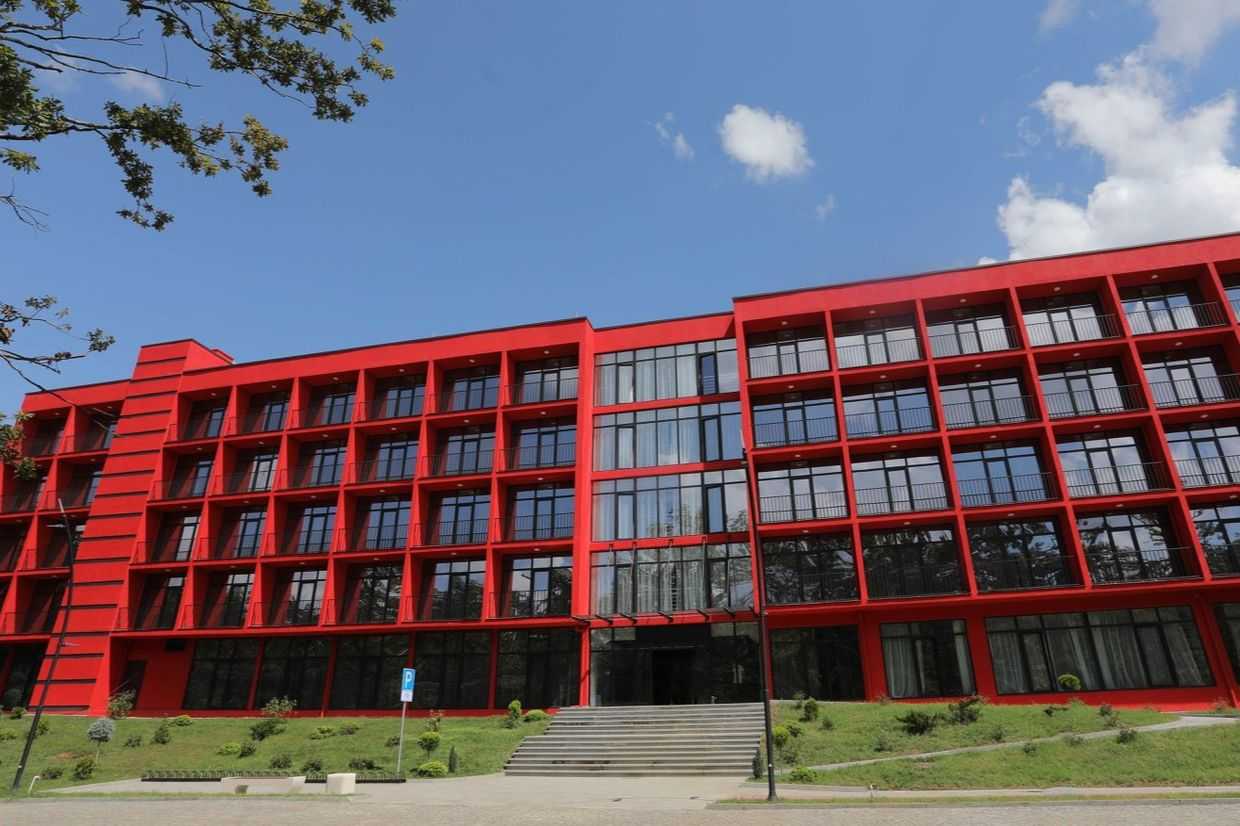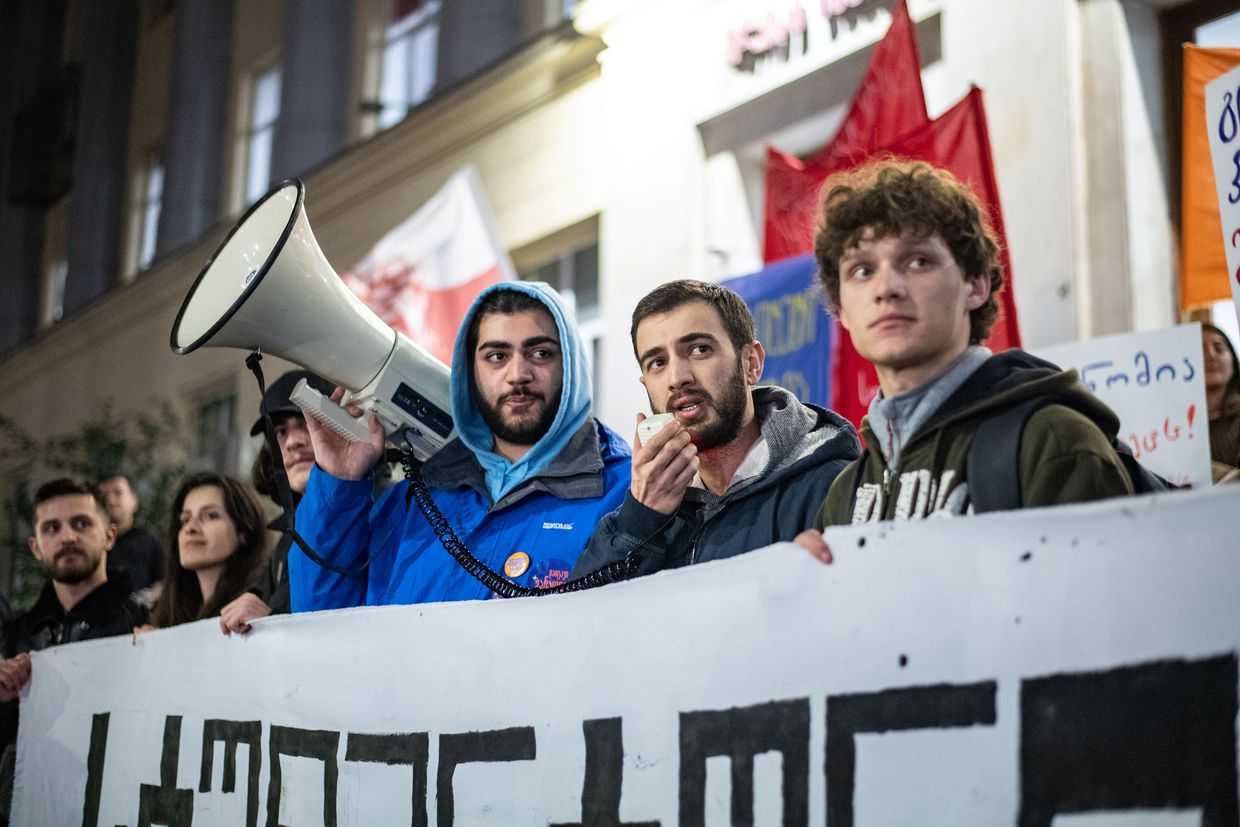When EU politicians say one thing, Georgian Dream leaders say another
EU politicians have taken to issuing their own corrective statements following meetings with Georgian Dream leaders.

Prime Minister Irakli Kobakhidze's claim that five EU countries opposed the sanctions against Georgia was quickly denied by Romania, Italy, and Spain, while the expected opponents, Hungary and Slovakia, stuck to their positions.
Kobakhidze's response? He alleged that the three countries changed their position because of ‘pressure’.
The Prime Minister not only failed to present the proof of his claims about the so-called ‘pressure’, but continued to make even more unsubstantiated claims.
The discrepancy between Georgian Dream's interpretation and the actual positions stated by European politicians has been a long-time trend, but the gulf has grown so wide in recent weeks that foreign leaders have apparently felt the need to publicly call out the distorted comments.
Who was (not) against the sanctions
Hungary, Slovakia, Italy, Spain, and Romania were the countries that Kobakhidze thanked on Tuesday for ‘protecting the interests of the Georgian people’ at the EU Council which took place the day before.
‘We have information on five countries, but we should consider that the list of these countries is broader. I mean the countries that opposed the sanctions’, he said.
The following day, the Spanish, Italian, and Romanian Foreign Ministries all issued statements refuting Kobakhidze’s assertion that their respective countries had opposed sanctions, while emphasising their concern regarding the ongoing developments in Georgia.
On Thursday, during a press conference at the government administration, Kobakhidze stated that the Georgian Dream had information on Romania’s anti-sanction position from public sources, and said that regarding Italy and Spain, ‘the information from public sources coincided with the information we received from our sources’.
Kobakhidze named RFE/RL’s European Bureau journalist, Rikard Jozwiak, as the source behind the Romania leak. Jozwiak had indeed mentioned on X before the Council meeting that Romania, along with Hungary and Slovakia, was against the sanctions. However, after the meeting, Jozwiak only named Slovakia and Hungary as the opponents.
As for Italy and Spain, Kobakhidze did not specify any public or personal sources he relied on to substantiate his claims.
‘We had information from our sources. We have the right not to specify these sources […]’ he said.
Kobakhidze went further, adding that the countries he named did definitely oppose the sanctions at the Council, but then gave up their position as a result of ‘pressure’.
In regards to Romania, Kobakhidze went further, asserting that Romania's Constitutional Court had also ‘forcibly’ annulled the results of the first round of the country’s presidential election, specifically after US State Department spokesperson Matthew Miller spoke about Russian interference in the first round, in which pro-Russian candidate Călin Georgescu won.
‘Given this context, it’s no surprise that Romania made a statement opposite to their actions toward Georgia’, Kobakhidze said.
Claims that the Romanian court's decision is the result of Western interference are not exclusive to Kobakhidze, they have also been widely spread in the West. Donald Trump Jr., who is no stranger to conspiracy theories, described the court's decision as a 'Soros/Marxist attempt' to rig the outcome, while controversial Professor Jeffrey Sachs made similar claims in an interview Tucker Carlson, another conspiracy theorist and commentator, while criticising President Joe Biden's foreign policy.
At the same press conference, Kobakhidze added Luxembourg to the list of countries ‘opposed’ to sanctions and referenced comments by the EU's top diplomat, Kaja Kallas, on the matter.
In reality, Luxembourg's Foreign Minister Xavier Bettel did make a statement about Georgia before the Council meeting, saying that while he supports punishing those responsible for the violence against demonstrators, challenging the results of the October 26 elections are a separate thing, and he ‘needs to hear if there was fraud’.
However, Bettel did not say that he is specifically against sanctions, but instead clearly said that electoral irregularities and violence against protesters are two separate issues.
It is unclear what Kobakhidze was referring to when he mentioned that Kallas had said Luxembourg was opposed to sanctions, as she did not mention Luxembourg at all during her post-Council press conference.
The Macron-Ivanishvili call
In any case, this is not the first time that Georgian Dream’s account of a meeting partially or fully contradicts what their European interlocutors have said about it.
On 12 December, Georgian Dream announced on social media that French President Emmanuel Macron had called the honorary chairman of Georgian Dream, Bidzina Ivanishvili.
Georgian Dream said that Macron had expressed concern about the situation in Georgia, and offered to contribute to fully defusing the situation. Georgian Dream also wrote that, for his part, Ivanishvili had thanked Macron for the offer and welcomed the idea of joint efforts.
At the end of the 1-hour conversation, according to Georgian Dream, both Macron and Ivanishvili agreed that communications would continue in the coming days and that ‘the progress achieved would be assessed’.
On the other hand, the statement from Élysée Palace regarding the conversation was much more critical. According to the statement from the French side, Macron condemned the intimidation of civil society and the opposition, as well as the violence against peaceful protesters and journalists at the hands of security forces.
The French statement also said that Macron had called for the release of all individuals who were detained arbitrarily and expressed regret over Georgia's deviation from its European trajectory.
Macron's call for inclusive dialogue, involving all political parties and representatives of civil society in line with the European aspirations of the Georgian people, was also mentioned.
Later, Georgian Dream issued a follow-up statement, explaining the responses Ivanishvili gave to Macron about the detained demonstrators, as well as the actions of the police during the protests.
Georgian Foreign Minister meets Austrian counterpart
On 5 December, Georgian Foreign Minister Maka Bochorishvili and her Austrian counterpart, Alexander Schallenberg, met during the 31st Ministerial Council of the OSCE in Malta.
The Georgian Ministry Foreign Ministry wrote on X that Bochorishvili ‘once again highlighted Georgia’s well-deserved place in the European family and expressed gratitude for Austria’s unwavering support of Georgia’.
According to the Georgian Foreign Ministry's press service, the meeting focused on ‘ongoing processes in Georgia’ and emphasised the ‘government's goal to make every effort to achieve further progress on the path of European integration’. The statement also mentioned Bochorishvili's gratitude to her Austrian counterpart for supporting Georgia's European aspirations, as well as the affirmation that ‘Austria will continue to stand by Georgia in its EU membership journey’.
Schallenberg’s account of the meeting and subsequent publicly announced conclusions were entirely different. In a post on X, Schallenberg said he was ‘extremely concerned about recent developments in Georgia’. He added that he ‘underlined the need to fully respect freedom of assembly and expression. High time for government to engage with opposition and civil society in order to de-escalate polarisation’.
The leaders of Georgian Dream do not always resort to the tactics of misinterpretation, or softening the tone of European statements, or all out distorting their content. In other cases, they simply launch sharp attacks against European governments or politicians for their positions.
For example, Kobakhidze called the decision to revoke the visa-free regime for holders of Georgian diplomatic passports an ‘anti-Georgian’ move. He used the same term to describe the sanctions imposed on Georgian officials by Lithuania and Estonia.
It’s worth highlighting the ruling party's policy of misinterpretation does not only target international actors: Georgian Dream uses the same tactic to justify its own controversial decisions. Perhaps most notably, it continues to claim that the EU membership bid has not been halted, despite having announced it on November 28. The fallout of the EU U-turn has caused a historic nationwide protest movement that continues to this day.









